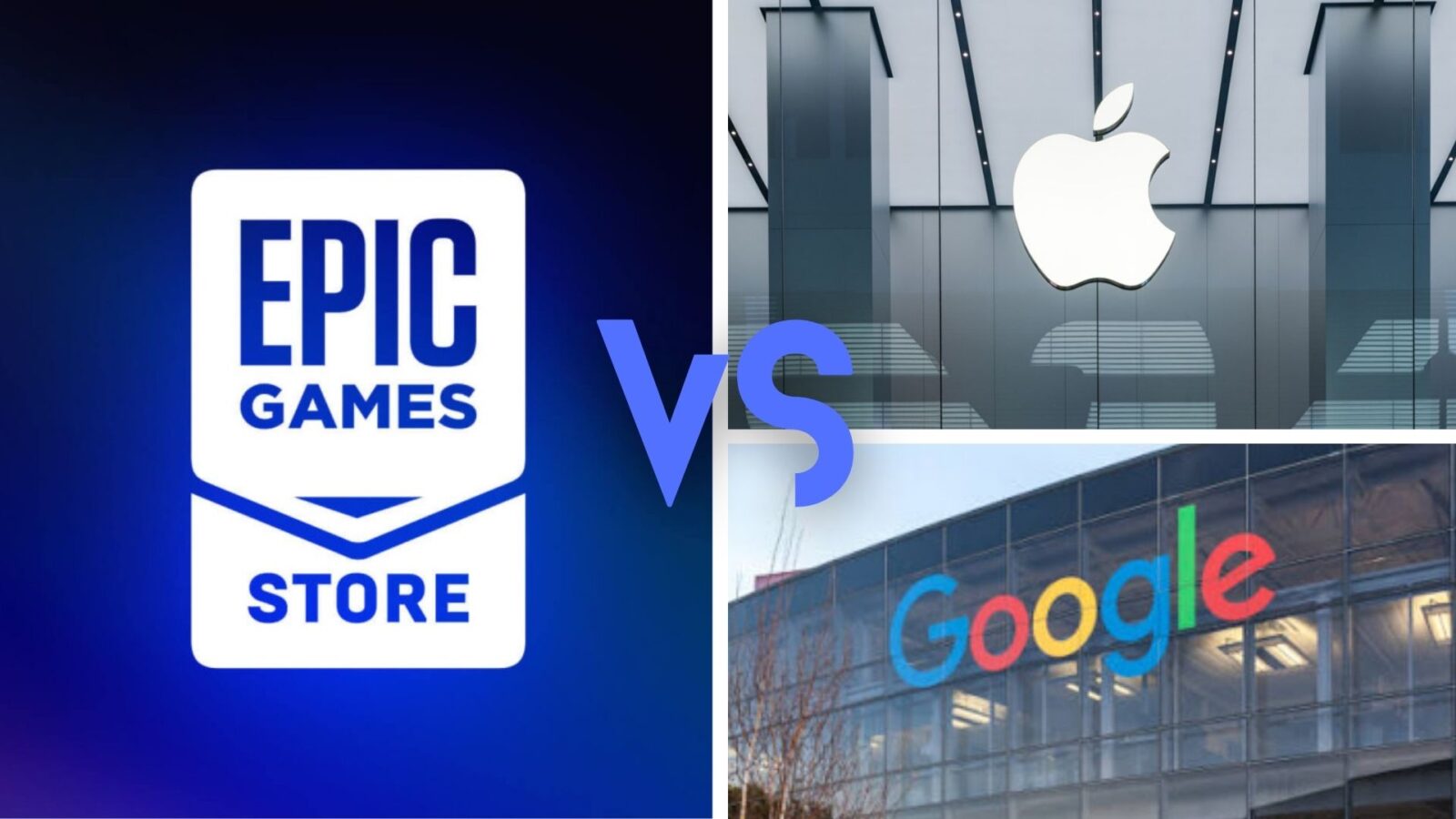The clash between Epic Games and tech giants Apple and Google has been nothing short of epic itself. At the heart of this battle lies the question of fair pricing and control within the mobile app ecosystem. Let’s dive into the intricacies of this ongoing feud of Epic vs Apple and Google, and explore its implications for developers, consumers, and the future of app stores.
The Antitrust Battle
Epic Games Triumphs Over Google in Monopoly Case: What Does it Mean for Consumers and Developers?
In a landmark verdict, a San Francisco jury recently sided with Epic Games, declaring Google guilty of operating an illegal monopoly through its app store. This ruling has brought to light the concerns surrounding limited choices and exorbitant costs faced by consumers in the digital marketplace. Google’s revenue-sharing model, where it hosts the Google Play Store and takes a portion of developer earnings, has come under intense scrutiny.
But what are the implications of this ruling for app developers? While the jury has determined liability, the final decision on remedies lies with the judge. Consequently, Google is not expected to implement significant changes to its Play Store until the court’s final ruling, potentially shifting the burden of business costs onto consumers. However, the court aims to restore competition in the market without causing substantial disruptions to Google’s operations.
Epic vs Apple: A Battle of Titans
In a parallel battle, Epic Games took on Apple in a similar lawsuit. Despite the court dismissing most of Epic’s monopoly claims, the case shed light on the contentious issues surrounding app store policies. Apple’s strict control over its ecosystem, particularly the App Store, has long been a subject of debate. Developers contend with hefty commissions, leading to inflated prices for consumers.
The courtroom drama underscored the pressing need for alternatives to the existing app store model, including third-party app stores and payment systems, to break the duopoly. While Apple’s business model remains unchanged, the fight for fair pricing and a more competitive marketplace persists.
As these legal battles continue to unfold, consumers and developers alike are closely watching for the outcomes, which have the potential to reshape the digital landscape and usher in a new era of competition and fairness in app distribution and monetization. Stay tuned for further developments as the tech giants navigate the evolving regulatory landscape.
Read More: Epic Games Revenue Split Explained: How Epic’s 12% Share Is Changing the Game
The Mobile App Industry at a Crossroads: What Lies Ahead?
With the recent courtroom showdowns between Epic Games and tech giants Google and Apple, the future landscape of the mobile app industry hangs in the balance. As the legal dust begins to settle, industry players anxiously await the judges’ final decisions, which could have far-reaching implications.
One of the central questions on everyone’s minds is whether Google will be compelled to unravel its existing arrangements and adjust its revenue-sharing agreements. Additionally, there is considerable interest in how alternative app stores and payment systems will be regulated in the wake of these legal battles.
At the heart of these deliberations lies a delicate balance between fostering healthy competition and ensuring the continued viability of app store business models. Developers are eager for clear guidelines that will enable them to navigate the evolving landscape effectively, while consumers are advocating for greater affordability and transparency.
Meanwhile, tech giants find themselves grappling with their roles as gatekeepers of the digital marketplace, facing scrutiny over their control and pricing policies. The outcome of these legal battles will undoubtedly shape the future trajectory of mobile gaming and pricing practices, with implications for developers, consumers, and industry stakeholders alike.
As the saga unfolds, the mobile app industry remains in a state of flux, with the everlasting battle for fairness and innovation poised to shape its future course. Stay tuned for further developments as the industry continues to navigate this transformative period of change.






























